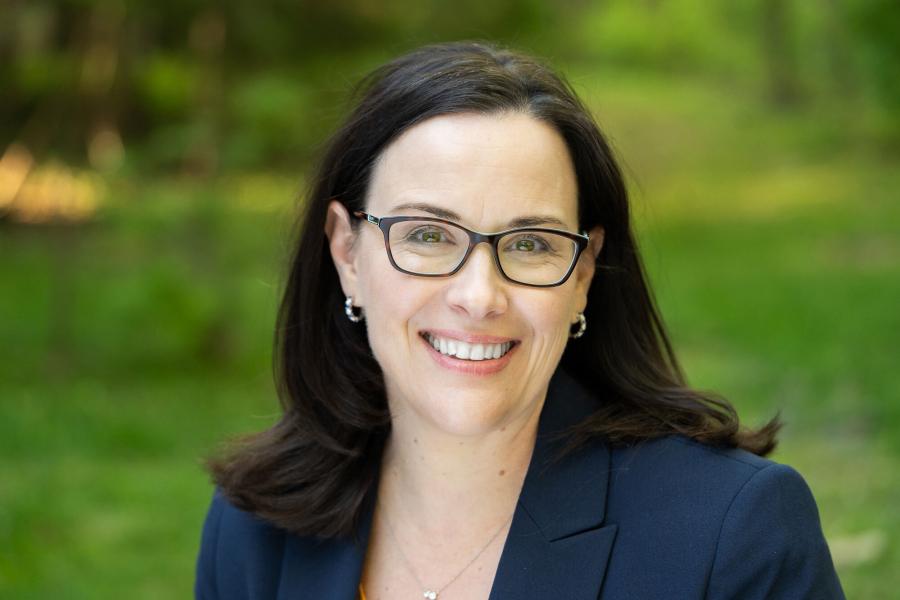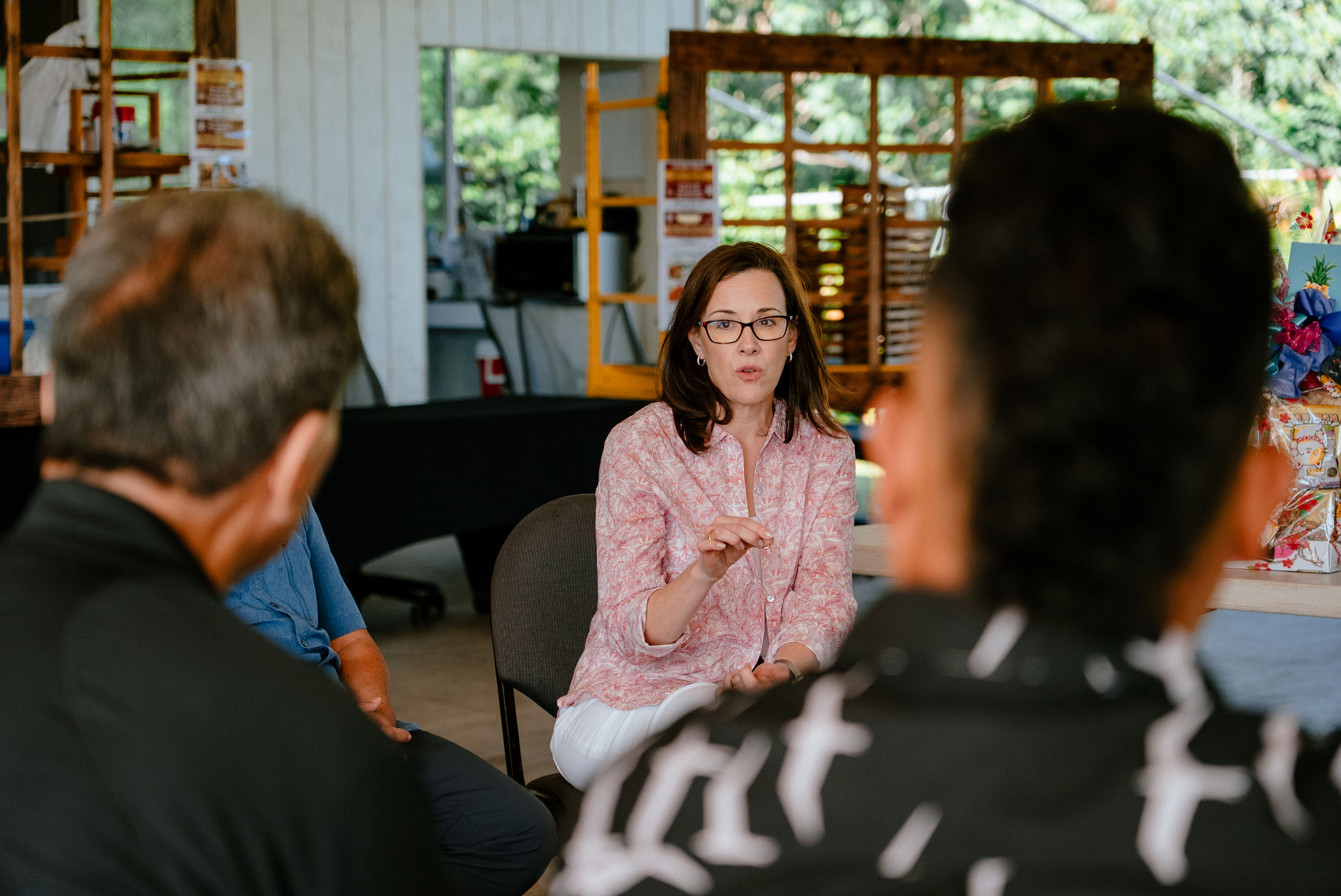ALUMNI
Navigating Global Governance

As CEO and president of the Internet Society, Sally Shipman Wentworth ’97 leads a global charity that works to ensure affordable and resilient internet connectivity for people everywhere and a safe and secure online experience. She draws on her background with international communications policy and internet governance at the State Department and the White House.
A technological tool of opportunity, the internet empowers people and changes lives. At the Internet Society, we help to bring the internet to everyone, ensuring that all have a voice in shaping its future.
Sally developed an interest in politics and international affairs because her parents discussed current events with their children. At Westmont, professors Shirley Mullen, Dave Lawrence and Bruce McKeown challenged her to confront alternative viewpoints, grapple with principles and history, and engage with different theories and philosophies. “I think I learned to write in those classes,” she says. “They focused on essay exams and research papers with grades based on your thoughts and your ability to communicate persuasively and effectively. I adored them.”
Studying in Europe with the International Business Institute (IBI) shaped her future. Starting in Stockholm, they visited 12 different countries. At the U.S. Embassy in Moscow, Ambassador Thomas R. Pickering’s remarks to the students inspired Sally, and she admired his leadership when she later joined the State Department. “Through IBI, business, politics and international affairs all came together,” she says. “It was absolutely transformative.”
She completed a Master of Arts in international political economy from Claremont Graduate University and won a highly competitive two-year fellowship through the Presidential Management Fellows Program, eventually earning a coveted spot in the State Department. She then turned a rotation to the Office of Communications, Information Policy, into a full-time position. After the burst of the dot-com bubble in 2000, Sally participated in delegations that negotiated international agreements for global communications policy, including the United Nations World Summit on the Information Society (WSIS) in 2003 and 2005.
“Nobody fully understood how the internet would transform society,” she says. “I had an opportunity to participate in some of the first negotiations setting an international policy framework for the information society. We discussed human rights, security, cultural diversity, content, creativity and development to ensure this society included the whole globe and not just wealthy countries.”
Sally became assistant director of telecom and IT for the White House at the end of George W. Bush’s presidency, carrying out policies and coordinating work across various federal agencies. “It involved a lot of domestic policy, working on spectrum auctions, net neutrality and internet governance,” she says. “Every day was a new adventure.”
She learned about the Internet Society and its impassioned former president Lynn St. Amour while at the State Department. “She spoke about the impact of the internet and the potential to change people’s lives and be a force for good. I always thought it would be amazing to join an organization like that.”
She left the White House to join the policy team at the Internet Society, later becoming vice president for public policy. “I had this passion for policy,” she says. “I was deeply interested in public service, and I cared about the globe and making a contribution.”
After 15 years, Sally became CEO and president in September 2024. With more than 120 chapters worldwide, the Internet Society makes a global impact. One member took the society’s community-based connectivity courses so many times he began teaching others. “He built a community network in Kenya without waiting for the equivalent of an AT&T,” she says. “With a small investment and some basic training, communities can connect themselves. Thousands of people in Kenya got connected, and it changed their lives.
“In many parts of the world, the internet remains in its infancy. We work to give children access to online resources for their education and to create opportunities and employment in health care, education and business. A technological tool of opportunity, the internet empowers people and changes lives. At the Internet Society, we help to bring the internet to everyone, ensuring that all have a voice in shaping its future.”

This is a story from the Spring 2025 Westmont Magazine